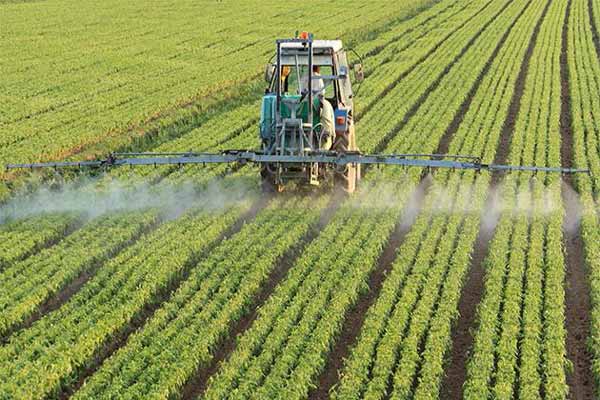This article has been written by Aditi Diwan from Hidayatuallah National Law University and the article has been edited by Khushi Sharma (Trainee Associate, Blog iPleaders) and Vanshika Kapoor (Senior Managing Editor, Blog iPleaders).
Table of Contents
Introduction
India is a country, where more than half of the population relies on agriculture for their livelihood. The agricultural sector is the most important part of the Indian economy, thus, is the main source of income in India. In 2013, India was the 7th largest agricultural exporter worldwide by exporting $38 billion worth of agricultural products. However, the income derived from agriculture is exempted from income tax. The presence of a huge untaxed agriculture sector has created simple ways of avoiding taxes. The growing evidence of increasing prosperity of the rural rich who are perceived to be the major beneficiaries of the ‘tax-free’ status of agriculture, is a significant inequity of the tax structure. The fact that a major portion of the economy is essentially ‘tax-free’ has led to a deeply unfair tax system which has led to significant distortions with an overall negative impact on the economy. There are several administrative and political explanations for the removal of the exemption of income tax on agricultural income in present times.
History
The history of agricultural tax can be traced back to 1860. It applied to income from all sources including agricultural income even when it was under high taxation by land revenue. It was active for 5 years and then repealed. Later, it again came into effect from 1869 but again repealed in 1863. Finally, it was imposed in 1886 but this time agricultural tax was excluded and the exclusion has stayed ever since.
The reason for its exemption was that agriculture was already subject to a major tax in the form of land revenue. The Indian Taxation enquiry committee made a concerted attempt in 1925 to bring agricultural tax into the framework of income tax. It observed that, “There is no historical or theoretical justification for the continued exemption from the income tax of income derived from agriculture. There are, however, administrative and political objections to the removal of the exemption at the present time.” But still, it remained unimplemented.
In 1935, the Government of India Act came into effect. It took away the central government’s power to impose tax on agriculture and gave it to the provincial governments.
- The Indian Constitution in its seventh schedule, which defines and specifies the allocation of powers and functions between the union and the states, in its union list in entry 82 gives power to the centre to levy taxes on income other than agricultural income.
- In the same schedule, under the state list, entry 46 gives powers to states to levy taxes on agricultural income.
- Agriculture is exempt from income tax under Section 2(1A) of the Income Tax Act which defines agricultural income as “rent/revenue from land, income derived from this land through agriculture and income derived from buildings on that land”.
- Section 10(1) of the Income Tax Act, 1961, a Central Act, excludes agricultural income from the computation of total income. This exemption would, however, be available only in cases where the income in question constitutes agricultural income within the meaning of Section 2(1A).
The Supreme Court, in the case of, The Commissioner Of Income Tax vs Raja Benoy Kumar Sahas Roy 1 defined the term agricultural land as,
“The expression ” agricultural land ” means any land used as arable, meadow, or pasture ground only, cottage gardens exceeding one-quarter of an acre, market gardens, nursery grounds, orchards, or allotments, but does not include land occupied together with a house as a park, gardens other than as aforesaid, pleasure grounds or any land kept or preserved mainly or exclusively for purposes of sport or recreation or land used as a race-course.”
In 1935, Bihar was the first province to levy agricultural income tax which was later followed by Assam and Bengal in 1944.
The Raj Committee on Agricultural Wealth and Income presented its report in 1972, which is perhaps considered the most detailed report on agricultural taxation. The Vijay Kelkar Committee also raised the problem in 2002, stating that a resolution allowing the centre to pass a tax on agricultural profits that would then be delegated to the respective states should be assigned to the states.
Presently, six states have agricultural tax legislation on the books. They are Kerala, Tamil Nadu, Assam, Bihar, West Bengal and Odisha. But the implementation varies substantially, from taxes not being levied at all to being levied only upon income from plantations. A number of other states such as Rajasthan and Uttar Pradesh have reversed their policies on the issue over the decades, introducing and then rolling back agricultural tax.
The administrative objections to the removal of the exemption of income tax on agricultural income at the present time are as follows:
Small tax base
The agricultural census showed that there were 138 million holdings in India in 2010–11, of which 118 million were held by marginal and small farmers (93 million marginal and 25 million small). The income of small and marginal farmers is very low, they can hardly earn for a living and thus are left with either no savings or with a very small amount. Around 95% of the total assets are owned by such farmers which means only 5% of the farmers will be liable to pay the tax. Therefore, it will not have major revenue potential. So, the tax income would be very limited and it is not worth consideration.
Low credit facilities
If agricultural tax is imposed on farmers, it will reduce their chances of getting significant credits and it will lead to credit flowing only to rich farmers, as they’ll have a higher income to show. In present times, most of the small farmers take the money they need, from the local moneylenders which they(moneylender) provide without proper enquires. On the other hand, Banks pay attention to numerous things before providing a person with the loan, like occupation, income, work experience, repayment period etc. Small farmers who comprise a significant portion of the farmers’ population have a very poor income as they have very small lands, so they will not be eligible for the needed credit. Farm produce also fluctuates every season so they don’t have a fixed income which will make it difficult for them to repay the loan.
Lack of clarity on land title
The imposition of agricultural tax will lead to the documentation of assets and access to formal lending of credit. The small farmers are usually illiterate and uninformed and thus they are unaware of the procedure to make proper documentation of their land. Also, they do not maintain systematic books of accounts regarding their production and income. Therefore, they will not fulfil the requirement of banks for lending credit.
Less productive farming techniques
Farming techniques have evolved over time and the latest machinery is used for various farming processes. But, the case in India is different. More than 50% of the workforce comprises farmers and 95% of them are small and marginal farmers which make it difficult for them to purchase such expensive machinery. Although there are many government subsidies many of them still cannot avail themselves. This leads to low productivity which in turn leads to low income and with much less income they cannot afford to pay taxes.
Agrarian distress
The agrarian distress has been deepening, and there has been a rise in farmer suicides. With so many farmers committing suicide because of pending debts, low productivity and small income, imposing agriculture tax will certainly increase the suicide rate.
Also, the rural areas are developing at a high pace which has led to the privatization in these areas making expenses high. The expense of rural households has been raised by education and health privatization, and the burden of all this has affected agricultural households. The government provides services either at a very low cost or free of charge but, the private services cost way more than the government ones. So, the expenditure increases and the farmers are left with no savings and more debt. This way it is impossible for them to pay taxes.
Informality of agriculture
Agriculture is an informal sector. Almost all the payments are made in cash which makes it difficult to keep a track of income and expenditure. Assessing their true income or income earning potential becomes a burdensome task and if proper revenue is not known, ascertaining the tax amount will get problematic.
Price fluctuation of agricultural produce
There is a large fluctuation in the annual income of farmers. Harvests are unpredictable as they are affected by weather, disease and pests. A majority of farmers are dependent on monsoons. Also, most of the agricultural products are perishable, their price fluctuates every now and then, so the farmers’ income varies every season. Therefore, some years there may be adequate produce while others can see poor production. Fluctuation in agricultural produce results in low income which again is a situation of distress for the farmers.
Disincentive for the farmers
Imposing an Agricultural tax may discourage the farmers because of the extended expenditure. This will lead to a decline in production which will badly affect food security. Due to the lack of food security, the country will essentially depend on imports which in turn will lead to Forex reserves going down leading to food inflation. The Public Distribution System will be affected badly. Thus, it has a long chain of disadvantages.
Economic grouping is difficult
People often argue that farmers can be divided into various economic groups, in terms of their income and the tax can be implemented likewise. But, they do not keep in mind the fact that agriculture is an informal sector, the illiterate farmers do not even have a record of their landholdings, having conformity regarding their income is a farfetched thought. They don’t have the required documents with regards to their land and thus the resources and income they have cannot be ascertained. Thus, it is not an easy task as it looks from the outside.
Agriculture is already taxed with several regulations. It is important to eliminate several regulatory barriers that hinder farmers’ opportunities. For example, when foreign prices are high, sudden export restrictions on agricultural goods mean a tax on the income of farmers. In India, regular export bans on multiple commodities are well known. Similarly, there are domestic trade limits. And as the government is preparing a common national market now. In many states, mandi taxes are also high.
The political objections to the removal of the exemption of income tax on agricultural income at the present time are also taken into account below:
In addition to the administrative reasons, there are some political reasons also, which are responsible for the non-implementation of agricultural tax in India, which are as follows:
No government wants to antagonise such a large population
The farmers in India constitute 61% of the total population. They establish a strong political group and no government would want to upset these many people. It can be understood with the help of the recent Farm Bill.
The Farm Bill received the President’s assent on 24th September 2020. It was brought up with an aim to increase the farmers’ income and sell their agricultural produce wherever they want. The States of Punjab and Haryana have the maximum farmers in the country and they export large quantities of agricultural products worldwide. The act due to certain reasons
aggravated them and they started protesting in the Singhu Border. Today, it’s been two months since they are protesting and that too at the time of the pandemic (Covid-19) and extreme cold. The government is unable to convince the farmers and also there are many opposition parties to lead them on the wrong path. The farmers have asked the government to take all three bills back and are ardently stuck to their decision. This has led to a stressful situation for the government, farmers and people all over the country.
Similarly, the farmers won’t be happy if the agricultural tax is introduced in the country and it will lead to the same or even more stress and turmoil than it had led with the introduction of the Farm Bill.
It will affect the vote bank
As mentioned above, the farmers constitute a major proportion of the country’s population and thus they form a major political group. The introduction of the agricultural tax will include an additional expenditure to their total expenses. This will make them oppose the existing government and the chances of them coming into power again will reduce at a high pace. It is obvious that no government would want to upset such a large population and end their chances of remaining in power. As it is evident, the governments in the state and centre have always favoured the farmers and rarely have passed a law to augment them. Therefore, it is a major reason for the non-introduction of Agricultural Tax in India.
Politicians themselves are a beneficiary of exemption of agricultural tax from total income
For the last 70 years, agricultural income has been used as a method to turn black capital into white currency. The “agricultural income” path is misused by most politicians and the citizens sponsored by these politicians to turn their black capital into white money. The Department of Income Tax and the officers in the Department of Income Tax are well aware of this abuse of the agricultural income tax exception, however, for political reasons, they choose to stay quiet on this tax chaos. When a decent officer attempts to scrutinize the agricultural income tax exemption, the whole political structure starts to threaten him and persecutes, suspends, and even dismisses the officer involved from the operation.
Conclusion
Thus, we can say that the decision to implement the agricultural tax in India will be a tough one. India is a country with a huge population and many problems, like, illiteracy, unawareness, misuse of political powers and many more. Implementing the agriculture tax on such a country with a high proportion of farmers would be very difficult. However, the government can take various measures to differentiate the farmers into economic groups and then implement the tax on rich farmers and also the central government should take the powers in their hands to implement the agricultural tax so that when the time comes, they have the authority to do so. Implementation of Agricultural tax is important in the present times as the agricultural sector has become a veil for hiding loads of black money. But, still, a decision cannot be made until and unless we resolve all the administrative problems that we are going through in the present times.
Students of Lawsikho courses regularly produce writing assignments and work on practical exercises as a part of their coursework and develop themselves in real-life practical skills.
LawSikho has created a telegram group for exchanging legal knowledge, referrals, and various opportunities. You can click on this link and join:
https://t.me/joinchat/J_0YrBa4IBSHdpuTfQO_sA
Follow us on Instagram and subscribe to our YouTube channel for more amazing legal content.
 Serato DJ Crack 2025Serato DJ PRO Crack
Serato DJ Crack 2025Serato DJ PRO Crack











 Allow notifications
Allow notifications


